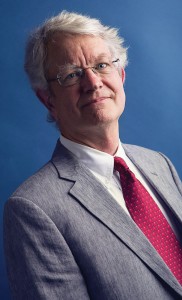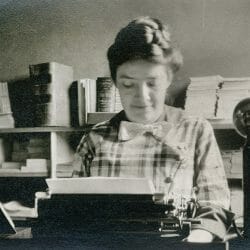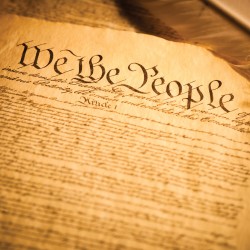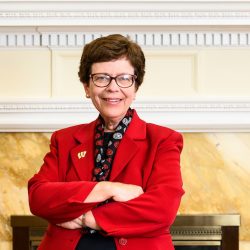John Woolley MA’74, PhD’80 was 12 when he stood at a Nashville, Tennessee, curb watching President John F. Kennedy’s motorcade scoot past him en route to the airport. The chief executive was in Woolley’s hometown on May 18, 1963 — just months before he was assassinated — to renew his call for public service.
“He waved, and it was over before you knew it,” Woolley recalls. “My personal reaction was, ‘Big deal. I could have been playing baseball.’ ”
Thus, it’s ironic that today Woolley runs the nonpartisan American Presidency Project — the world’s most comprehensive online resource on all aspects of the U.S. presidency.
This year, the site is expected to draw at least 4.5 million unique visitors from 200 countries, including reporters, novelists, political junkies, scholars, and even presidential speechwriters. The project hosts a vast assemblage of presidential documents, addresses, and candidate remarks — 118,046 items as of this writing, and an increase of 7,000 in the past year alone.
“At Wisconsin, I was actually trying to avoid the presidency,” Woolley says. “I was really interested primarily in public policy at the time, and I was kind of annoyed that political scientists weren’t more focused on what seemed to me the pressing issues of the day — energy and the environment.”
But when Woolley took a post in 1986 to teach political science at the University of California–Santa Barbara, the department chair asked him to create a course on the presidency. Thirteen years later, he started the American Presidency Project by posting presidential documents to the then-nascent Internet as a resource for students in his course.
Woolley and then–graduate student Gerhard Peters collaborated to comb the public domain for more documents, converting digitized materials into a format that allows the public to search for items by name or subject. Woolley and Peters continue to collaborate closely on the project.
“I had no idea it was going to become so big,” Woolley says. “Today, there’s nobody on the Internet, in terms of presidential documents, that comes close to the kind of collection that we have.”
For now, Woolley is busy collecting and archiving candidates’ remarks from the 2016 presidential campaign. Comments that have been characterized as inflammatory will be preserved for posterity.
“My personal hope,” he says, “is that people will look back and shake their heads, saying, ‘What was wrong with these people? How did their institutions get off track in a way that made any of this possible?’ ”
Published in the Fall 2016 issue




Comments
No comments posted yet.